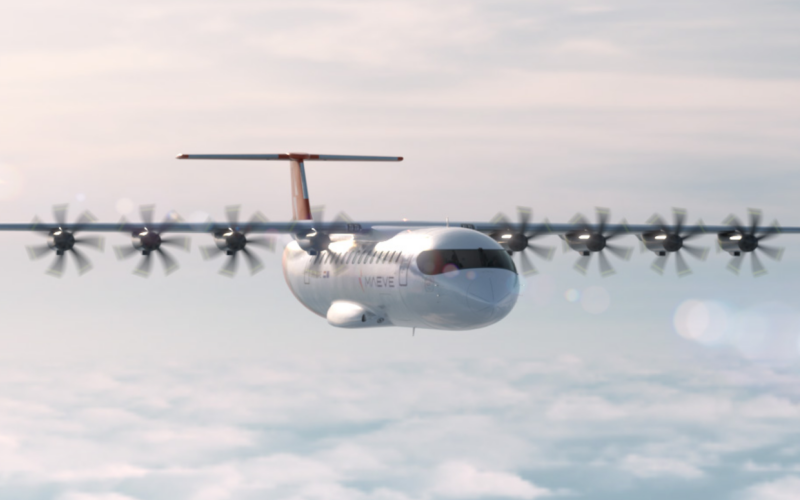Dutch electric startup Maeve Aerospace presented its Maeve01 concept on April 13, 2023.
The new 44-seater aircraft design, which is expected to be ready by 2029, will have an all-electric propulsion, with eight electric motors placed on the wings, and a range of 460km.
Maeve Aerospace is positioning the Maeve01 as a zero emissions aircraft and promised that it will be possible to recharge in 35 minutes.
Developing an all-electric aircraft of this size has proven quite challenging, with one of the leading firms in this field, Sweden’s Heart Aerospace, recently modifying its design to allow for hybrid-electric propulsion. This was in view of the difficulties involved in relying only on battery-powered flight for regional-scale flights.
In conversation with AeroTime, Maeve’s CEO and Co-founder Jan Willem Heinen acknowledged the difficulties of developing an all-electric aircraft of this size, but pointed to several factors that make him and his team feel optimistic and confident about the feasibility of the project.
One of them is the recent flexibilization by EASA regarding fuel reserve rules, which, within the limitations of current battery technology, represented a serious range penalty for all-electric aircraft.
He also pointed out that Maeve is collaborating closely with Amprius, one of the leading companies working on a new generation of batteries with higher energy density of up to 500 Wh/kg.
In this regard, Heinen pointed out that, while any electric aircraft might initially look sub-optimal, this is sure to change over time. Aircraft have a shelf-life measured in decades and it will be possible to upgrade batteries progressively.
“Electric aircraft that enter service around 2030 may be in service up to 2055 and beyond, and who knows what the performance of batteries is going to be by then,” Heinen said on a call with AeroTime, before pointing out at the importance of having a clean sheet design and thinking long-term: “A few decades from now, when looking back we will think we were fools to be too conservative with new aircraft design.”
Maeve has raised €3.4M in funding since it launched two years ago, mainly from angel investors. It is now looking to close a new round of €40M, which may give some VCs entry into the company.
So far, four airlines are said to have expressed interest in Maeve, to the point of writing letters of support. Two of them are known, though the other two remain confidential.
One of them is a fellow Dutch company, namely startup airline Fly With Lucy, which in turn has the Air France-KLM low-cost subsidiary Transavia as one of its investors. Fly With Lucy wants to leverage the expected lower operational costs of electric aircraft as a means of creating a regional network throughout Europe.
The other interested party is Napier Air, a regional carrier in New Zealand, a market that Heinen considers strategic, since it has a good number of heavily trafficked air routes of up to 400km in length, such as Christchurch (CHC) to Queenstown (ZQN), as well as plenty of renewable energy sources. All of this makes air routes within New Zealand’s South Island an ideal use case for aircraft such as the Maeve01.

